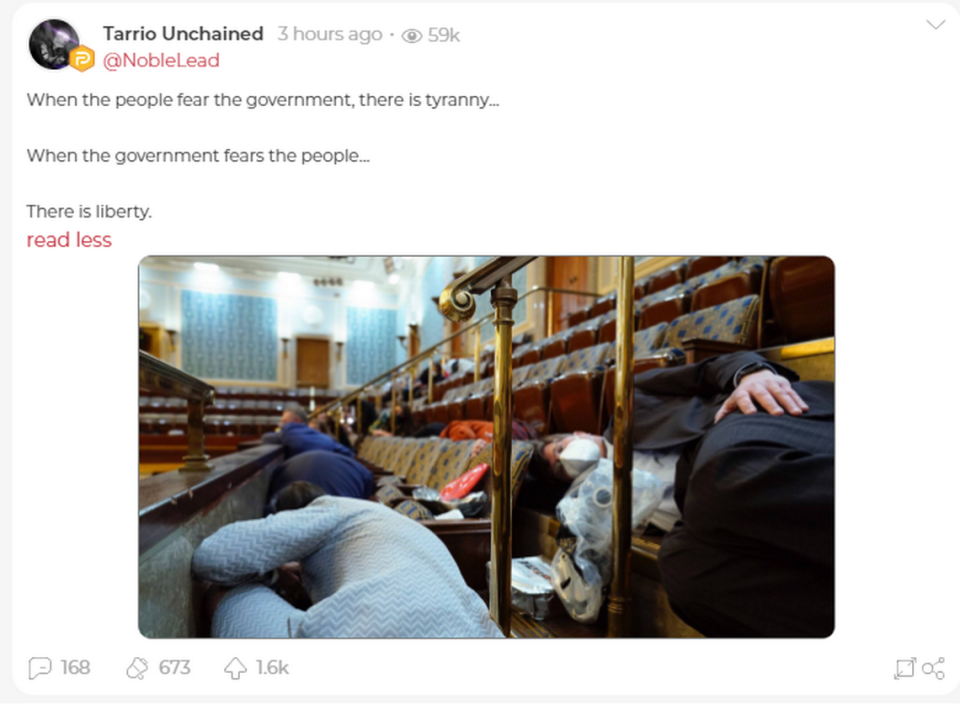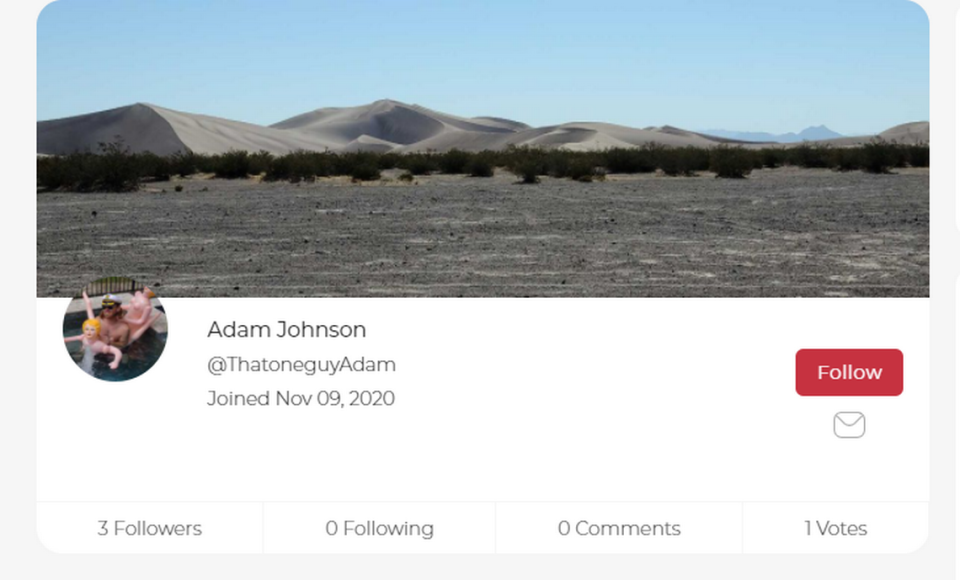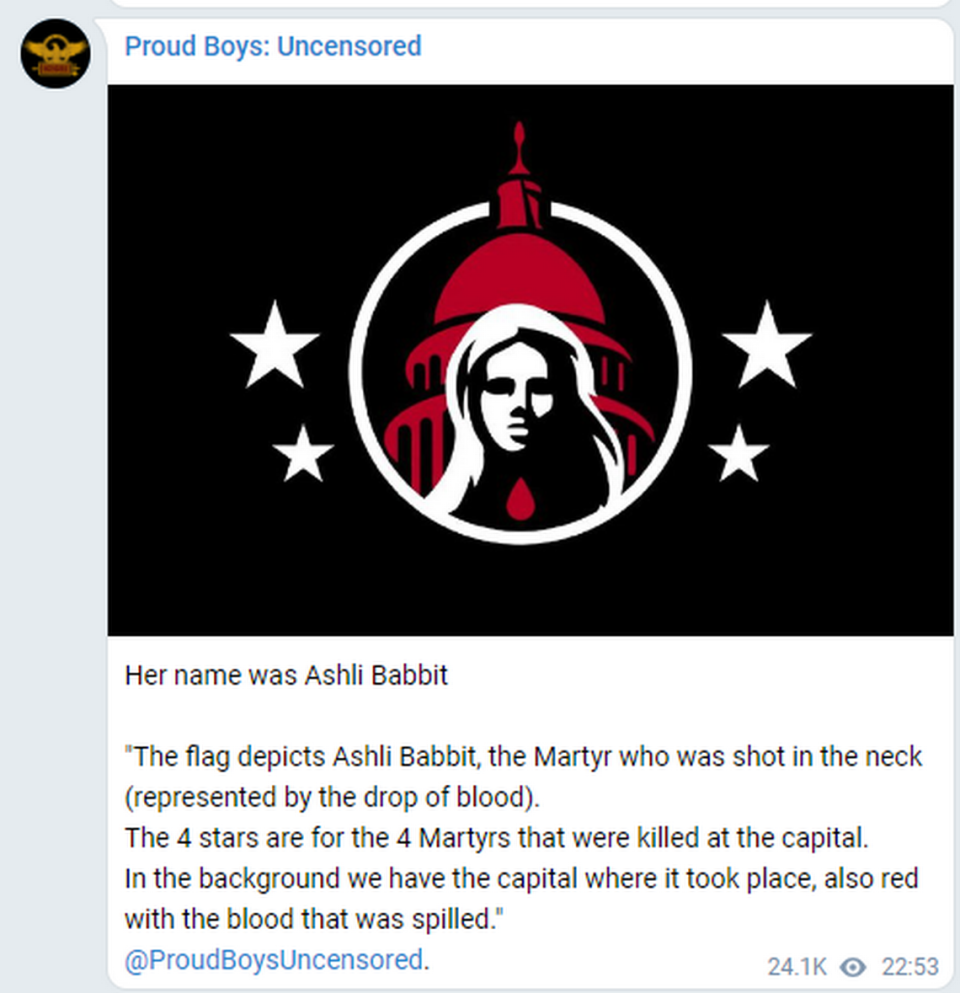Inauguration Day will come and go. Violent domestic extremism may be around for a while
When it’s over, it won’t be over.
On alternative social media, self-styled militia and patriot websites and hate-group platforms like that of the Proud Boys, the message is the same: There are no plans to fade away after President Joe Biden’s Jan. 20 inauguration.
“There’s no reason to believe that the problem we encountered in the U.S. Capitol on the 6th [of January] will dissipate,” warns Paul Joyal, a security expert who pointed to FBI alerts about possible political violence. “That in and of itself is evidence of a wide-ranging network of men of violence who are willing to take the law into their own hands.”
The FBI has warned of possible attacks on government buildings in all 50 states, perhaps in demonstrations this Sunday. A massive military presence is already in place in the nation’s capital to send a muscular message to would-be insurrectionists. Armed extremists had already protested at the state capitols of Pennsylvania and Michigan during the heated presidential campaign.
On Friday, the inspectors general at the Pentagon, Justice Department, Interior Department and Homeland Security announced probes into agency planning before, the response during and actions after the siege of the U.S. Capitol that the FBI had warned about in advance.
Tech companies one by one have taken extremist groups off their platforms, and while that lowers the tone it also makes it harder to follow those who are fomenting violence.
The takeover of the Capitol building came in the wake of a months-long narrative pushed by President Donald Trump and his followers and some GOP lawmakers that the election would be — then was — stolen from him. That’s something repeatedly rejected by state and federal courts, but very much alive in the minds of many of his supporters.
The ultra-nationalist Proud Boys, led by Henry “Enrique” Tarrio and some of whose members ran as for office as Republicans in Florida, are a prime example of the challenges awaiting the incoming Biden administration.
The group’s Miami-based leader Tarrio was detained before he could take part in the storming of the Capitol.
Yet on the now-idled social media platform Parler, an account bearing his name busily sent around that day what amounted to a call to arms, including a celebratory photo of people inside the building hiding from the rampaging crowd.
“When the people fear the government there is tyranny. When the government fears the people there is liberty,” said the caption on the post by the Parler page Tarrio Unchained, although accounts can be created in other people’s names.
A bevy of tech companies shut down Parler’s access to its users following the riot, but that did little to deter.
“Do you want total war?” asks the quiz on the public-facing portion of Proud Boys: Uncensored. It’s a fast-growing member-only group on Telegram, a cloud-based platform that offers users voice calls over the internet, messaging and ability to create or join like-minded groups.
These sorts of social-media-savvy extremist groups are now riling up followers by actively spreading rumors of martial law and military-imposed quarantines.

Enemy within?
The Defense Department this week acknowledged the potential threat from within its own ranks of radicalized service members, after arrests included two active-duty members of the National Guard. The Pentagon has not said how many ex-service members have been charged or are under investigation, but the FBI and Justice Department have confirmed that some are. Acting Defense Secretary Chris Miller Friday ordered an internal Pentagon review to see if further steps are needed to root out potential extremists in the ranks.
“Simply put, we will not tolerate extremism of any sort in DOD,” Garry Reid, director for defense intelligence, told reporters Thursday, noting all incoming DOD applicants and National Guard members are screened and must take part in an insider threat program.

Video from the rampage shows many dressed in military garb, some of whom broke through the windows wearing orange tabs on helmets that seem designed to identify them with others in the crowd. Before the Capitol was breached, many of the demonstrators were lined up in military-type positions used to take buildings in combat.
In a briefing conditioned on anonymity, a senior defense official confirmed that extremist groups are looking for allies in the military ranks, something likely to increase.
“We know that some groups actively attempt to recruit our personnel into their cause or actually encourage their members to join the military for the purpose of acquiring skills and experience in our military force,” the official said.
“We recognize that those skills are prized by some of these groups, not only for the capability it offers them, but it also brings legitimacy in their mind to their cause. The fact that they can say they have former military personnel that align with their extremist and violent extremist views. So this clearly is of great concern to us.”
Websites like mymilitia.com are full of former service members looking to create local militias. Most are not anti-government but fear martial law or some rupture with democracy. Yet others hint at more.
“We are primarily interested in ex-military and law enforcement with more combat oriented …. skills and SWAT/SRT backgrounds,” said a recruiting pitch from Aegis6ix, looking to establish a unit in South Carolina back in 2017. “This is a for-real, privately funded unit that has a dedicated mission in times of national crisis. As for the cloak and dagger routine, I am afraid it is necessary as privacy is one of our greatest concerns.”
Aegis6ix did not respond to a reporter’s inquiry on an email provided on his post.
“I’m a USMC veteran — still qualified for field duty and eager to do so. I’m in the 740 area and myself and others are seeking a group to train with,” wrote a retired Marine with the snarky handle Jomamma, in a New Year’s Day post on an Ohio militia thread where another member discussed the violence that was to ignite days later in the nation’s capital.
A retired service member who serves in law enforcement said the attraction to extremist ideologies within the military has become “part of the culture.”
“I spent the first several years of my career investigating extremists and gang members in the military,” said the veteran, who requested anonymity because he was not authorized to speak on the subject. “It’s been an ongoing problem. Based on what I’m seeing now, it’s much deeper. It’s part of the culture. I didn’t realize how deep until this week.”

Challenges abound
The Biden administration will face domestic security challenges not seen since the turbulent late 1960s and 1970s. One place it will turn is to fusion centers, which help law enforcement collaborate on intelligence and investigations nationwide.
Created after the 9/11 terror attacks, fusion centers operate in all 50 states, three U.S. territories and 27 major urban centers. They were part of the recommendations in the 9/11 Commission Report, seeking to bolster information sharing across law enforcement agencies large and small.
These centers have evolved to include cyber crime and more recently the growing white supremacist movement that FBI Director Christopher Wray recently called the nation’s biggest domestic threat.
The fusion center concept, however, is arguably understaffed. There are about 1,000 analysts across the country, a number Mike Sena, president of the National Fusion Center Association, hopes will rise sharply.
The successful rampage into the Capitol, he fears, increases the threat of copycat actions.
“If people feel they can storm the U.S. Capitol, what can’t they do? That’s one of my concerns,” said Sena. “Activity like last week just emboldens those who align their ideology to extremist groups.”
The Justice Department and FBI had opened more than 275 investigations and charged 98 people as of midday Friday. In a news conference they said that over the past week they leveled placeholder charges that are now being upgraded to more serious felony offenses, including seditious conspiracy. Many involved in the Capitol melee are now hiring defense attorneys and surrendering, they said.
Sena hopes Congress and the new administration will pass legislation that allows for the designation of domestic terror organizations, much as is done for foreign extremist groups such as al Qaida.
“If we want to identify organizations for being terrorist groups, then we need to address it and we need to have some sanctions for that,” he said, cautioning there has been past opposition from civil liberties organizations and gun-rights groups.
The designation of foreign extremist groups often involves trying to cut off their funding sources. That’s a tougher prospect for attacking loose-knit domestic extremist groups.
“These people don’t have money. This isn’t like they are flying across the world to train people,” Sena said, cautioning there isn’t evidence to date showing large-scale coordinated funding.
Tackling domestic extremism could also require greater use of facial recognition technologies, and the kind of monitoring and surveillance used against foreign adversaries, said Joyal, the former Capitol police officer.
“If not, law enforcement is put into a box that it’s only after a probable-cause standard can be met —that a crime is planned or about to be committed — before the total capacity of law enforcement is brought to bear,” said Joyal, now managing director of the homeland security practice for the consultancy National Strategies Inc.
Lawmakers, QAnon
Several lawmakers from both parties, returning to their districts, have been accosted by Trump supporters going to extremes, emboldened by the violent rampage. It could be a sign of worse to come.
“I hope every politician is [soiling] their pants in fear. They’re no longer safe in public,” said one celebratory post on Telegram’s Proud Boys: Uncensored group. The post featured a video showing harassment of South Carolina Republican Sen. Lindsey Graham, and garnered more than 12,000 views.
Another post read, “Never let these system agents know a moment of peace. Every time they show their faces in public they should be confronted by American citizens telling them how pathetic they are.”
Then there are followers of QAnon.
That’s the online conspiracy group that espouses the belief that President Trump has waged a secret war against government elites who, they claim, worship Satan and are pedophile child traffickers.
Given the chance to denounce QAnon, Trump claimed to know little more about them other than the fact they liked him.
Photos and video from the storming of the Capitol show prominent QAnon members in the angry crowds, and many in the throng carried flags and placards with the letter Q.
Most prominent among them was Arizonan Jacob Anthony Chansley, 33, now infamous for his face paint and a buffalo-horned headdress. He had a Parler page, QAnon Shaman. The self-described actor and YouTube personality goes by the name Jake Angeli, and federal prosecutors in a court filing said this week he left a note on Vice President Mike Pence’s Senate chair warning that “justice is coming.”
The social-media site Gab.com had been particularly welcoming to QAnon after its members were booted from Twitter, which over the past week shut down more than 70,000 QAnon-linked accounts. Gab was barely operational for much of the week, its CEO citing the rush of new customers and hackers to bring it down. QAnon-themed products were also recently banned from sale on Amazon’s website.
The QAnon viewpoints add another element to a widening swath of markers being monitored in the armed forces as signs of extremism.
The military gets about half a million applicants annually and winnows them down to about 200,000 new recruits. It conducts aggressive screening of applicants that increasingly includes scrutiny of social media postings and an exam for tattoos and piercings that indicate support for the 3 Percenters (why the name), Boogaloo Boys and other extremist groups. The 3 Percenters take their name from the erroneous claim that only 3% of colonists took up arms during the American Revolution
McClatchy and the Miami Herald have been monitoring militia and supremacist online activity since last May, when nationwide unrest spread amid protests over police killings, which coincided with a parallel rise of extremists.
Several current and former military personnel were detained last June after law enforcement tracked their affiliations to the Boogaloo Boys, known for wearing colorful Hawaiian style shirts to identify themselves. They believe that civil war is in the offing. Two active members of the Virginia National Guard were arrested on Thursday for storming the Capitol.
“We don’t care what your profession is, who you are or are affiliated with, if you conduct criminal acts we will charge you,” Michael Sherwin, the acting U.S. attorney for the District of Columbia, told reporters Friday, confirming the arrests of the Guardsmen.
The website take-downs in response to the Jan. 6 riot may complicate the DOD screening for extremists, cautioned retired Army. Col. Jeffrey McCausland.
“It was always difficult to screen, because of privacy issues,” said McCausland, a visiting professor of international security affairs at Dickinson College in Pennsylvania. “Now it’s even more difficult.”
Much depends on whether this is a permanent or temporary removal of extremist groups from online platforms.
“The good news is, you kicked them off Facebook and Twitter, therefore they can’t spew their hatred more broadly,” McCausland said. “The bad news is you kicked them off Facebook and Twitter, where we can better keep an eye on them.”

 Yahoo Movies
Yahoo Movies 